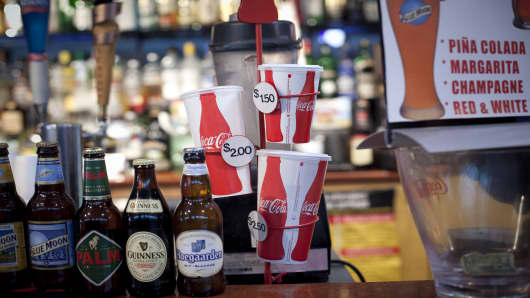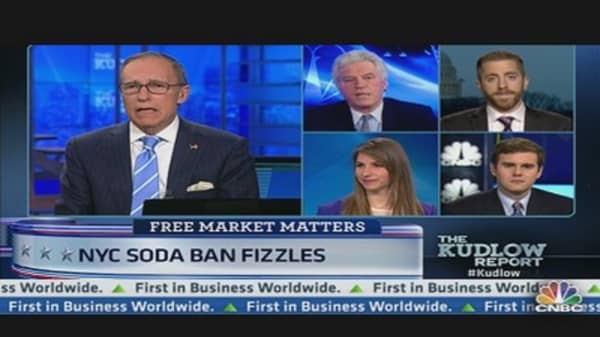Just hours after a New York State Supreme Court Justice invalidatedNew York City's regulation to ban the city's food services businesses from serving sugary drinks larger than 16 ounces, the American Beverage Association (ABA) and other business groups opposing the ban declared victory.
"The court ruling provides a sigh of relief to New Yorkers and thousands of small businesses in New York City that would have been harmed by this unpopular ban," the ABA said in a statement. "With this ruling behind us, we look forward to collaborating with city leaders on solutions that will have a meaningful and lasting impact on the people of New York City."
The ABA was just one of several organizations that opposed New York City Mayor Michael Bloomberg's proposal, teaming up with the $61 billion dollar a year soft drink industry to challenge the ban for being inconsistent in its application and claiming that the city's health board had sidestepped the city council's legislative authority in approving the ban.
"This is a great victory, particularly for thousands of restaurant operators and industry suppliers serving New York City who would have experienced financial hardships had the ban been enacted," said Dawn Sweeney, President and CEO of the National Restaurant Association. "We are extremely pleased that the judge recognized that the Board of Health exceeded its authority when it initially passed the ban."




